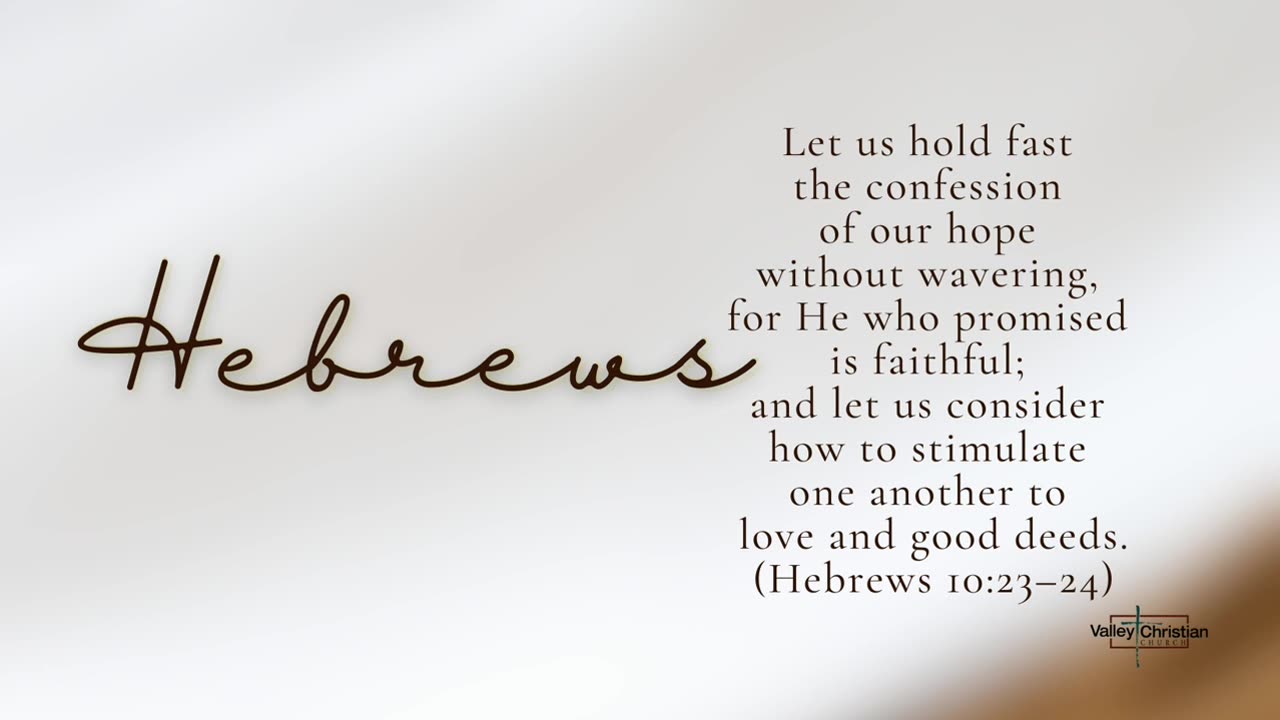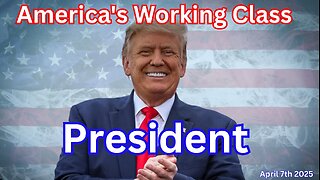Premium Only Content

What's New About It?
Hebrews 8: 6-8 Part 2
Jerry Mongello discusses Hebrews 8:2-13, focusing on the theme of prayer, the ongoing war in Israel, and the global rise of anti-Semitism and Christian persecution. The key biblical verses highlight Jesus as the High Priest and Mediator between God and humanity, emphasizing that salvation comes exclusively through Him. We delve into John 11, where Lazarus's resurrection serves as a preview of Jesus as the ultimate Mediator.
[Hebrews 8:1-5 NKJV] 1 Now [this is] the main point of the things we are saying: We have such a High Priest, who is seated at the right hand of the throne of the Majesty in the heavens, 2 a Minister of the sanctuary and of the true tabernacle which the Lord erected, and not man. 3 For every high priest is appointed to offer both gifts and sacrifices. Therefore [it is] necessary that this One also have something to offer. 4 For if He were on earth, He would not be a priest, since there are priests who offer the gifts according to the law; 5 who serve the copy and shadow of the heavenly things, as Moses was divinely instructed when he was about to make the tabernacle. For He said, "See [that] you make all things according to the pattern shown you on the mountain."
[Hebrews 8:6 NKJV] 6 But now He has obtained a more excellent ministry, inasmuch as He is also Mediator of a better covenant, which was established on better promises.
Now this is the cornerstone and the foundation that of our faith/Christianity is founded on. Jesus is the Mediator between man and God!!! THE ONLY MEDIATOR!!!
He explores the concept of the "new covenant" in Hebrews 8:8-9, addressing the speaker's initial struggle with the term "new." Through a linguistic analysis of the Hebrew and Greek words for "new," he emphasizes the renewal and regeneration inherent in the covenant, rather than a completely novel concept.
Connecting the covenant to God's Word, Hebrews 4:12-13, highlights the living and powerful nature of God's Word; drawing parallels between the new covenant and God's promises to Abraham, emphasizing faith as the key to righteousness.
In Hebrews 8:10-13, God promises to write His laws on the hearts of His people. This new covenant renders the old one obsolete, paving the way for a transformation and renewal in the relationship between God and humanity. Jerry underscored the mercy of God, who forgives unrighteousness and remembers sins no more.
[Hebrews 8:11-13 NKJV] 11 "None of them shall teach his neighbor, and none his brother, saying, 'Know the LORD,' for all shall know Me, from the least of them to the greatest of them. 12 "For I will be merciful to their unrighteousness, and their sins and their lawless deeds I will remember no more." 13 In that He says, "A new [covenant]," He has made the first obsolete. Now what is becoming obsolete and growing old is ready to vanish away.
Throughout the video, various biblical passages, including Zechariah 8:7-8, Isaiah 54:13-17, and John 6:44-47, are referenced to support the speaker's message of God's transformative power and the centrality of faith in the new covenant.
-
 LIVE
LIVE
The Big Mig™
4 hours agoTrump’s Tariffs, Art Of The Deal
5,284 watching -
 1:02:00
1:02:00
VINCE
3 hours agoWhy Trump's Tariff War Actually Makes Sense | Episode 16 (04/07/25)
177K115 -
 1:12:35
1:12:35
BonginoReport
4 hours agoEvita + John Daniel Davidson: Who Should Define ‘American’? BR Early Edition w/ Evita (Ep.176)
133K66 -
 2:06:46
2:06:46
Matt Kohrs
12 hours agoStock Market Crash: NO END IN SIGHT || The MK Show
55.2K4 -
 33:38
33:38
Rethinking the Dollar
1 hour agoBill Ackman's Chilling Warning: “Economic Nuclear Winter” Incoming | Morning Check-In
5.41K -
 52:44
52:44
Randi Hipper
1 hour agoMARKET IMPLODES OVER THE WEEKEND AS BITCOIN TUMBLES
29.6K5 -
 16:01
16:01
CatfishedOnline
2 hours agoI Sent My Life Savings To A Romance Scammer
22.7K4 -
 LIVE
LIVE
Wendy Bell Radio
6 hours agoAmerica's Working Class President
9,145 watching -
 1:12:58
1:12:58
Dear America
12 hours agoWorld Leaders Offer To Remove Tariffs On US! + Anti-Trump Protests Plague Cities Nationwide
52.7K17 -
 1:24:56
1:24:56
JULIE GREEN MINISTRIES
5 hours agoLIVE WITH JULIE
163K248